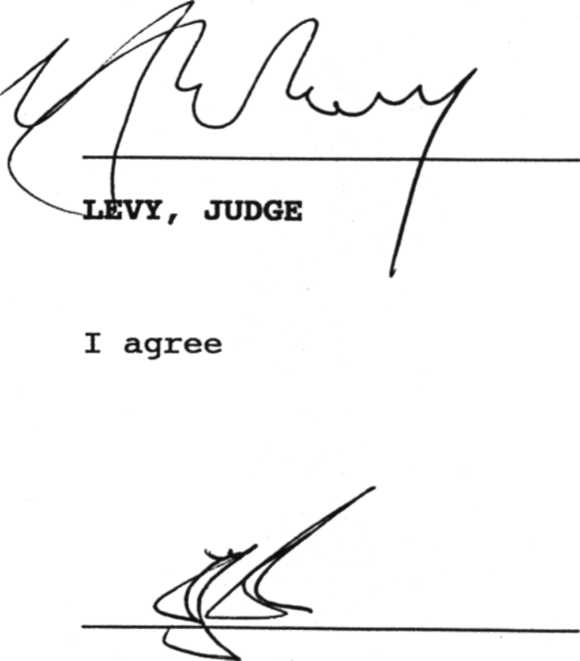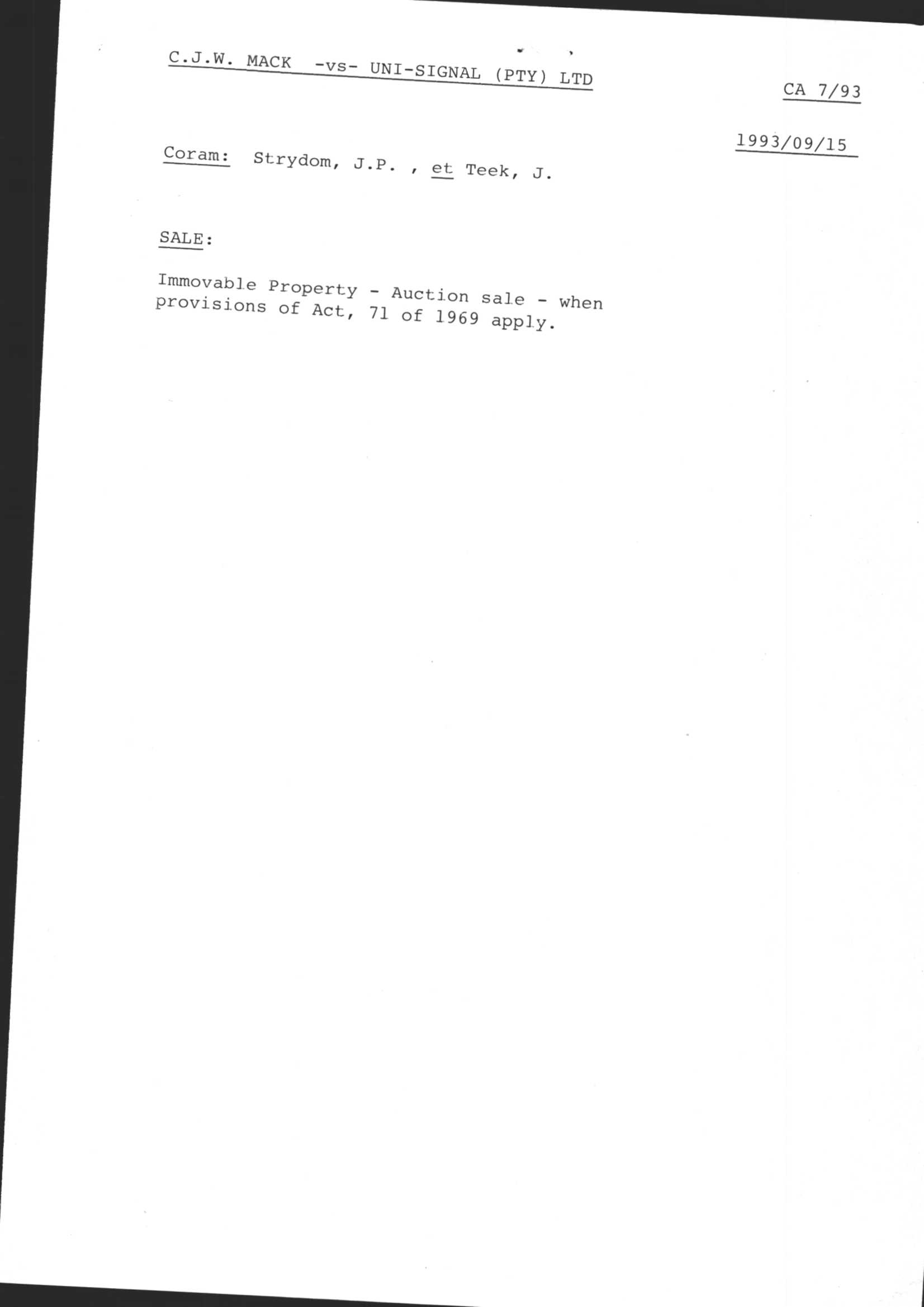ATTORNEY-GENERAL OF NAMIBIA -vs- PROSECUTOR-GENERAL
OF NAMIBIA AND 4 OTHERS 1993/08/23 CC 2/93 Coram: Strydom, et Levy & Frank. CRIMINAL PROCEDURE. Matter under appeal to the Supreme Court - matter postponed pending the outcome of the appeal.
CASE NO. C2/93 (& APPLICATION) IN THE HIGH COURT OF NAMIBIA In the matter between:-

ATTORNEY-GENERAL OF NAMIBIA APPLICANT
and
FIRST RESPONDENT SECOND RESPONDENT/ FIRST ACCUSED THIRD RESPONDENT/ SECOND ACCUSED FOURTH RESPONDENT/ THIRD ACCUSED FIFTH RESPONDENT/ FOURTH ACCUSED PROSECUTOR-GENERAL OF NAMIBIA NAHUM JOSEPH GORELICK N.O. NAHUM JOSEPH GORELICK ALFONSINA SAMBWE HANS GOAGOSEB
CORAM: STRYDOM, J.P. et LEVY, J. et FRANK, J. Heard on: 1993.08.23 Delivered on: 1993.08.23 JUDGMENT STRYDOM. J.: The four accused are being charged with contravening section 11(1)(b) of the Racial Discrimination Prohibition Act, Act 26 of 1991. Objections to the said
charge were raised by the accused on the grounds that section 11 of the Act is in conflict with articles 21(1) and 21(2) read with Articles 17 and 19 of the Constitution of Namibia. The matter was postponed till today for hearing of the argument on the objections. Late on Friday afternoon we were informed that the Attorney-General, after having perused the docket of the case, gave instructions that the prosecution against the four accused be withdrawn. We were however simultaneously informed that the Prosecutor-General does not regard himself bound by the instructions of the Attorney-General and that the State will continue with the prosecution. The attitude of the Prosecutor-General is therefore that constitutionally the Attorney-General cannot overrule decisions regarding prosecutions by him and that such instruction is therefore a nullity. The standpoint taken by the Prosecutor-General therefore raises the vexed question as to in whom the ultimate power to direct prosecutions rests, that is in himself or in the Attorney-General. This morning further documents were filed namely an application by the Attorney-General to postpone this matter pending a decision by the Supreme Court on this question. The matter was so referred in terms of the provisions of article 79(2) of the Namibian Constitution. We were urged by Mr Small, on behalf of the State, to hear argument on this issue and to decide this question notwithstanding the decision of the Attorney-General to
bring the matter before the Supreme Court. It is the undisputed right of the Attorney-General to refer matters for decision to the Supreme Court. See Article 79(2) of the Constitution and this was conceded by Mr Small. Mr Small however questioned the locus standi of the Attorney-General to appear in Court and argued that he would only have such locus standi if he is vested with the power to override decisions by the Prosecutor-General. Mr Small has therefore submitted that before the Court can decide on the application for postponement it will first have to decide the issue of the powers of the Attorney-General vis-a-vis the Prosecutor-General. In this regard Mr Small in turn has asked the Court for a postponement of the matter in order to prepare full argument. Mr Coetzee on behalf of the Attorney-General submitted, with reference to the Constitution and the Criminal Procedure Act, that the Attorney-General is in fact in control of prosecutions and could issue directives and instructions to the Prosecutor-General. This submission was supported by Counsel for the accused who also supported and moved for a postponement of the matter pending a decision by the Supreme Court on this issue. Because of the support of Counsel for the accused for the postponement, and the fact that they themselves have moved therefore, we find it unnecessary to decide the issue of locus standi of the Attorney-General in these proceedings and we therefore decline Mr Small's invitation to decide at this juncture the constitutionality of the powers of the Attorney-General.
We are satisfied that this is a matter which should receive the attention of the highest Court of this Country. The issue is a complex one which can have far-reaching consequences. The articles and sections which will have to be interpreted are certainly not clear cut. We now know that because of the referral of this issue to the Supreme Court that that Court will have to deal with it and will have to finally adjudicate upon it. The decision on the very same issue by the High Court of Namibia will in these circumstances have no more than academic value and may or may not be set aside by the Supreme Court. If the High Court should find in favour of the State and this decision is set aside by the Supreme Court it will mean that all that is done after the decision of the Attorney-General will be irregular and in fact a nullity. This will have exposed the accused to unnecessary costs which in the end may be for the account of the State (Vide article 25 of the Constitution.) On the other hand, if the Supreme Court should uphold the contention of the State the prosecution can continue. Mr Small has submitted that a postponement on these grounds will virtually bring prosecutions to a standstill as every accused will now seek a postponement on the ground that he or she want an opportunity to petition the Attorney-General. This is in our opinion highly unlikely, however, the position will not be much different if the Supreme Court should decide in the end the issue in favour of the Attorney-General. It is imperative that the Supreme Court should decide this issue as soon as is possible because of the uncertainty created by the conflicting standpoints. A
decision by the High Court on this issue, not being a final decision, may further contribute to this uncertainty. In the result we are of the opinion that the case should be postponed pending the outcome and final adjudication thereof by the Supreme Court of the issue referred to it by the Attorney-General in terms of the provisions of article 79(2) of the Constitution. STRYDOM, JUDGE PRESIDENT I agree
![]()


